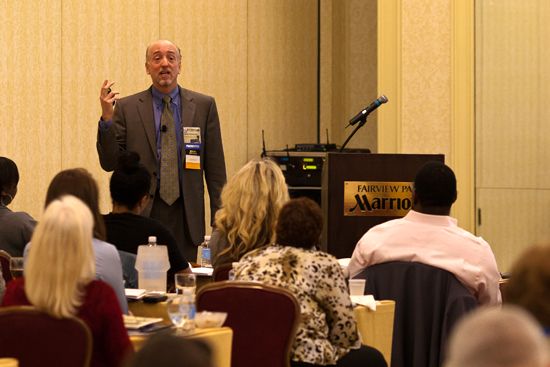
Are Consultants the Answer? (Part 2): Why Companies Don’t Hire Outside Help
- 1.Are Consultants the Answer to Your Proposal Challenges? (Part 1)
- 2.Are Consultants the Answer? (Part 2): Why Companies Don’t Hire Outside Help
- 3.Are Consultants the Answer? (Part 3): How to find the right consultant
- 4.Are Consultants the Answer? (Part 4): Finding the right consultant, at the right time, with the right stuff
There are four primary reasons why companies are reluctant to hire proposal development consultants.
In Part 1 of this series we explored the reasons for hiring outside consultants when internal proposal development resources are in short supply. Part 2 takes a closer look at why companies don’t hire outside help—even when they desperately need it.
There are a number of good reasons for hiring proposal development consultants. They can assist with an immediate proposal crisis or help meet longer term strategic objectives. Hiring a consultant is no easy task and can be a time-consuming and risky proposition. Consequently, many companies who would otherwise benefit from outside help resign themselves to going it alone.
Why are companies reluctant to hire proposal development consultants?
A dozen companies will give you just as many reasons why hiring consultants doesn’t work for them. The four reasons I hear the most:
- Consultants cost too much money
- They might give away our trade secrets
- They don’t fit into our corporate culture
- It takes too much time to find the right one
Consultants cost too much money
Let’s face it: good consultants are expensive, especially in high demand areas such as Washington, D.C. Top-notch proposal and capture managers cost between $150 and $200 an hour or more depending on the scope and timing of the proposal. Although volume leads, proposal writers, and graphic designers are less expensive, hourly costs for these consulting resources are rarely less than $100 an hour. These proposal development consulting rates may seem high on the surface, but they pale in comparison to those of other professions. For example, doesn’t $250 an hour fee seems like a great deal for a lawyer, especially when the senior partner of the firm charges as much as $600 an hour?
Most large companies going after multi-million bids have substantial bid and proposal (B&P) budgets (typically in the tens or hundreds of thousands of dollars). These B&P budgets can easily absorb the high rates for proposal consultants. For many small and medium sized-companies, however, these B&P numbers are out of sight. So, what’s the best way to overcome consultant sticker shock?
Buy in small chunks. There are a number of short proposal development tasks (4 to 16 hours of effort) that can provide high value and not break the bank. Consider the following tasks for immediate tactical needs:
- RFP analysis and outline development
- Proposal theme development
- Proposal template (past performance, resume) or color reviews
- High profile graphics (executive summary or volume overview)
For more strategic needs, consider a business development maturity assessment, or a proposal review of a document you’ve previously submitted. You will likely be surprised at how little you end up paying for some of these tasks and how much value they will bring to both current and future opportunities.
Consider a trial period. One of the biggest stumbling blocks to hiring a consultant for a long-term (and expensive) engagement is the well-founded fear that you don’t really know what you’re paying for. Will the consultant be a glorified note taker or a proactive force? Will your project or proposal goal be achieved? Will you be stuck if the consultant doesn’t work out?
One way to mitigate this risk is to hire the consultant for a trial period before you commit to a longer term engagement. The trial period can be a one- to two-week pre-RFP engagement to develop and review the capture or proposal management plans, the management of a smaller proposal, or some of the small chunk tasks described above.
Shop around. The safest way to become more comfortable with consultant rates is to understand the true value that consultants can bring to your company. Begin by shopping around. Talk to friends and colleagues in the profession. Contact established proposal development consulting companies in your area. And conduct research on local consulting rates and availability of resources. Warning: If you find a consultant with a significantly lower rate than the competitive range in your market, chances are he or she doesn’t have the experience or the qualifications you need to get the job done right.
Work with the consultant to build a business case. Managers often face an uphill battle to justify spending the money they think they need for external help. Don’t hesitate to solicit advice, support, and written proposals from consultant candidates to help justify the business case for their services to upper management.
Consultants might give away our trade secrets
Consultants bring a wealth of knowledge from a wide variety of methods, processes, and templates that they have either used, developed, or perfected. These best practices often reflect years of experience with a diverse group of customers and is one of the major reasons to hire consultants in the first place. Unfortunately, some of the customers that your would-be consultants work with may also be your fiercest competitors.
Most consultants follow a code of ethics and maintain strict professional standards. They are keenly aware of the proprietary nature of the services they provide. However, human nature suggests that some consultants will either stretch the limits, or may even intentionally violate the rules of proprietary information-sharing for personal gain. What can you do to minimize the risks of losing proprietary or confidential information?
Execute a non-disclosure agreement. A simple non-disclosure agreement (NDA) is the standard best practice for documenting terms and conditions related to sharing confidential and proprietary information that is not in the public domain. Most NDAs are very specific about the types of information that are proprietary and the remedies for violating non-disclosure terms and conditions. Most legal or contract departments have standard NDA agreements. If you are a small company and don’t have a legal department, you can find numerous NDA templates on the Internet.
Ask the consultant about best practice use and reuse. A simple direct question can sometimes provide significant insight into the philosophy and common practices of the consultants you are considering. Ask whether the consultant has boilerplate text or graphics from other proposals that he or she is willing to share. The answer to this question and the follow-up actions will shed considerable light on their willingness to
also share your best practice information with other companies. If you don’t feel comfortable with the type or amount of information a consultant is willing to share, keep looking for a more ethical and trustworthy one.
Check references. Hiring a consultant is an important decision and should always include some type of reference check. If you know the consultant or referring company the reference check can be as simple as an informal conversation. If you don’t know the consultant, a structured interview with a formal list of references is more appropriate. During the reference checking process, ask about the types of best practices and boilerplate the consultant has provided in the past. Then assess whether the information the consultant “gave away” is within your ethical comfort zone.
Consultants don’t fit into our corporate culture
The personality of a consultant—and the fit with your corporate culture—is often overlooked and can be a significant risk to project success. In an industry filled with fulltime employees who are often overworked and underpaid, even consultants with a reputation for open communication, diplomacy, congeniality, and integrity may be considered unwelcome outsiders. High hourly pay and superior skills and experience are only a few of the no-fault-of-their-own factors that can come between a successful external hire and a flop. How do you make sure that the consultant you hire is a good fit?
Take the time to interview candidates. A simple telephone or in-person interview will give you significant clues about the personality and potential fit of your consultant candidates. Schedule interviews with either key—or strong personality—team members in your organization who are skilled at assessing personality fit. If you or your team has any doubts, consider a trial period.
Define the scope of work and criteria for success. There’s nothing like a well-defined project to clearly articulate team and consultant expectations. Consider a detailed description of the scope of work to document the roles and responsibilities of the consultant and each proposal team member. Use a simple organization chart to depict direct and indirect reporting relationships. Document project and consultant success criteria and include an end-of-project evaluation to analyze planned versus actual results.
Secure buy-in from the entire team. A consultant’s success is largely dependent on the expectations of the proposal team he or she works with and the management team that pays for the consulting services. Taking the time to interview the consultant goes a long way toward securing buy-in and acceptance across the team. But don’t stop there. It is even more important to check in frequently with key team members to make sure the consultant is meeting expectations and has the right management style and personality to be successful.
It takes too much time to find the right consultant
The idea of finding a top-notch consultant, for a reasonable fee, with the right personality, who won’t give away your trade secrets, is challenging enough. If you had an immediate need to identify, select, and secure a consultant to fit this profile within the next 24 to 48 hours, most companies wouldn’t know where to begin. In fact, many companies abandon the idea because they simply don’t have enough time to find the help they need. How do you find good consultants quickly and easily to meet either short- or long-term needs? The short answer is plan ahead.
Identify responsive consulting companies with broad and deep networks. Start now to identify and vet a manageable number of proposal development consulting companies before the need arises. Meet with the principal members of each company to understand their business models, terms and conditions, and methods for identifying and securing consultants. Find out how long it takes them to identify two to three qualified and available candidates for future high-probability work. Get preliminary paperwork out of the way now, so that you’re ready to go when the time is right.
Develop a resource pool of trusted consultants. Start small and test-drive a number of consultant companies and individuals. After each project, rate the consultant performance, contribution, and value. Determine whether they should be trusted candidates for future opportunities and valued members of your consultant resource pool.
The idea of trying to go it alone without outside proposal help used to be considered noble, courageous, or even financially prudent by some companies. As the competition for precious new business revenue becomes increasingly fierce, more companies are turning to consultants to gain a competitive edge. Understanding the challenges and stumbling blocks to hiring outside help is the first step. The next part of this series will
focus on where to find good consultants and how to make the right hiring decision.



